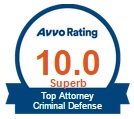Theft is a serious offense that carries consequences of severe jail time and fines. But beyond that, having a Theft on your record can affect you for the rest of your life. Criminal records are viewable by the public. Therefore, any potential employer, landlord, or loan officer can see it and typically it will cause you to be rejected.
When you are charged with or are caught in a situation where someone is accusing you of Theft, you should call a criminal defense attorney right away. At Ascheman Law, we offer free initial consultations and will be there each step of the way to be sure your rights are protected.
What is Theft?
The term Theft covers a large category of crimes, including embezzlement, check forgery, shoplifting, larceny, robbery, burglary and more. Examples of these offenses range from taking $10 from a friend to robbing someone at gun point to insider trading at a corporation. Theft crimes vary in severity and may be classified as misdemeanors, gross misdemeanors or felonies.
If the State is accusing you Theft, they are saying that you intentionally took property or services from another with the intent to permanently deprive that person of ownership without his or her consent.
What are the consequences if convicted?
A Theft conviction can carry many different consequences depending on the level of offense. The level of offense is often based on two things: 1) The value of the property or services stolen; and 2) whether the Theft involved a weapon, vehicle explosive or other dangerous item.
Also keep in mind that the following consequences can be made more severe if the Theft involved a reasonably foreseeable risk of bodily harm to another. If this is the case and the Theft constitutes a felony, the maximum sentence could be increased by 50 percent.
A conviction carries a maximum sentence of 20 years imprisonment and/or a fine of no more than $100,000 if the stolen property:
- Was a firearm; or
- Was valued at more than $35,000.
A conviction carries a maximum sentence of 10 years imprisonment and/or a fine of no more than $20,000 if the stolen property:
- Was valued at more than $5,000;
- Represented a trade secret;
- Was an explosive; or
- Was a controlled substance listed in Schedule I or II in section 152.02 (except marijuana).
A conviction carries a maximum sentence of five years imprisonment and/or a fine of no more than $10,000 if the stolen property:
- Was valued between $1,000 and $5,000;
- Was a controlled substance listed in Schedule III, IV, or V in section 152.02;
- Was valued between $500 and $1,000 and the convicted person had been convicted of this offense or a similar offense within the past five years;
- Was stolen from a corpse or grave;
- Was a record filed with the court;
- Was taken from a burning, abandoned or vacant building following a civil disaster; or
- Was a motor vehicle.
A conviction carries a maximum sentence of one year imprisonment and/or a fine of no more than $3,000 if the stolen property:
- Was valued between $500 and $1,000.
A conviction carries a maximum sentence of 90 days imprisonment and/or a fine of no more than $1,000 if the stolen property:
- Was valued at less than $500.
What to do:
If you or someone you love has been accused of Theft, it is important to seek help right away. At Ascheman Law, we are here to help you understand the system, protect your rights, explain your options and explain the ramifications that each option brings with it. Call us today at 612-217-0077. You’ll be glad you did!
- Appeals
- Assault
- Boating While Intoxicated
- Burglary
- Child Abduction
- Child Abuse and Neglect
- Child Sexual Abuse
- Controlled Substances
- Controlled Substances
- Criminal Defense
- Criminal Forfeiture
- Criminal Sexual Conduct
- CVO & CVH
- Domestic Abuse
- Drivers License Suspension
- Driving While Intoxicated
- Embezzlement
- Expungement
- False Imprisonment
- Felony Charges
- Forgery
- Fraud
- Gross Misdemeanor
- Hit and Run
- Internet Crimes
- Juvenile Cases
- Kidnapping
- Minor Consumption
- Misdemeanors
- Murder Charges
- No Contact Orders
- Parole & Probation
- Shoplifting
- Stalking
- Theft
- Traffic Tickets
- Trial Practice
- Weapon Charges
- White Collar Crimes
Contact Us
Landon Ascheman
500 Laurel Avenue
St. Paul, Minnesota 55102
MAP IT
Phone: 612-217-0077
Fax: 651-344-0700
Landon@AschemanLaw.com



